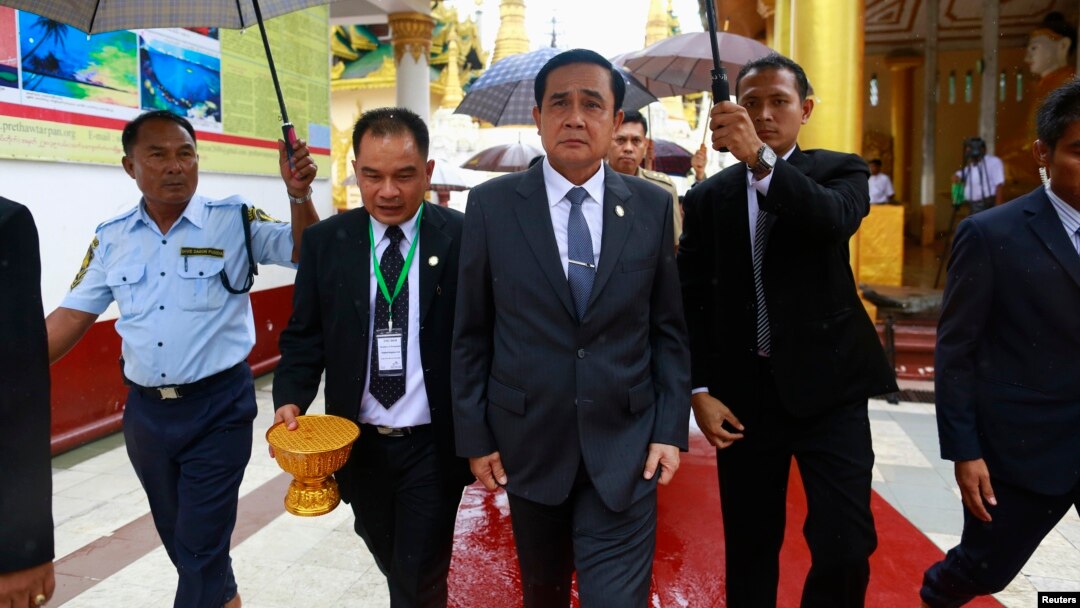Thailand's Prime Minister Prayuth Chan-ocha, the junta leader who carried out the latest coup in the kingdom, has made his first visit to a foreign country since taking control.
But his first official visit to Myanmar, also known as Burma, is overshadowed by a murder case that appears to be complicating bilateral relations.
Trade, improved border security and the plight of Myanmar's migrant workers in Thailand were on the agenda for the Thai prime minister's first overseas trip, but it is two Myanmar migrant workers, currently being held on suspicion of murdering two British tourists, who are gaining the most attention.
Rights groups in Thailand, Myanmar and elsewhere have cast suspicion on their arrests, issuing accusations that now-recanted confessions were beaten out of the suspects. Results of DNA testing that police say show a genetic match with material found on one of the two British victims have also come under suspicion.
Myanmar President Thein Sein on Friday asked the visiting prime minister for a "clean and fair" investigation of the case, according to media reports from Yangon, also known as Rangoon.
Nay Myo Zin, a Yangon-based human rights activist who was among a group of demonstrators protesting the visit near city hall, says the case is not being systematically investigated.
"Pressure by Myanmar's government should be applied on Thailand to get help from the international community so the real story can be revealed" and the two Myanmar citizens, likely arrested unjustly, be freed, he said.
Thailand's national police chief, Somyot Poompanmoung, told reporters in Bangkok that the evidence against the two men in custody is a result of a proper investigation and "in line with international standards."
The killings of the two young British tourists on the beach on the resort island of Koh Tao has tarnished Thailand's image as safe vacation destination. Thailand's tourism industry, accounting for up to 10 percent of the country's gross domestic product, has already suffered as a result of Bangkok's extended political street protests that preceded the May 22 coup.
Amnesty International is calling for an independent probe of the murders amid swirling allegations that both suspects were tortured during interrogations.
Myanmar workers in Thailand, where they are a critical source of affordable manual labor, have long been viewed as a vulnerable minority. While no one knows exactly how many Myanmar migrants are currently based in Thailand, some reports indicate there may be up to three million.
Since the coup, the junta has established a new registration system for migrant workers from neighboring countries that it says will better protect both laborers and employers.


